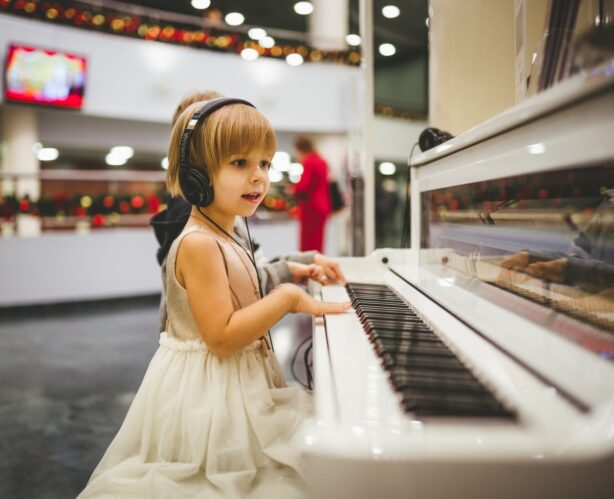Introducing a child to new interests and hobbies can be a fulfilling and rewarding experience, and the world of music is no exception.
As well as stimulating a child’s young mind and imagination, learning a musical instrument can also enhance your child’s emotional health and improve their focus and discipline.

If you would like to start your child on their own musical journey, choosing the right musical instrument for them to learn is an important first step.
But, with so many instruments to choose from, it can be hard to know where to start.
Here are three things to consider when deciding on a musical instrument that will suit your child and their abilities:
Your Child’s Interests
The first step in choosing the right musical instrument for your child is to think about their own interests and preferences.
You may notice when listening to the radio or playing music yourself that your child tends to favor a certain style or type of music.
Initially, if your child is quite young, registering them for a toddler or preschool music class can be a good idea. These classes will let children listen to and play with a variety of different instruments.
If, on the other hand, your child is a little older, they may have already decided that there’s a certain instrument that they’d like to learn.
In that case, it can be a good idea to see how committed they are with some beginner lessons, like piano lessons at South Shore Piano School or a music school near you, for example.
By taking the time to understand your child’s musical interests, you can make a more informed decision about which instrument to choose, and help them find an instrument that they are passionate about learning.
Your Child’s Personality
Choosing the right instrument can also require thinking about your child’s natural inclinations and learning style.
For example, if your child is naturally patient and enjoys taking their time to perfect a skill, they may be well-suited to an instrument that requires a high level of precision and attention to detail, such as the violin.
On the other hand, if your child is more creative and spontaneous, they may prefer an instrument that allows for more improvisation, such as the guitar or drums.
Making sure your child’s chosen instrument fits their personality style is a great way to ensure that they’re invested in learning how to play.
Your Budget
Musical instruments are an investment, and some can be significantly more expensive than others. So, it’s important to determine how much you have to spend on an instrument when making your decision.
Set a budget beforehand, and then see if one of the instruments your child favors fits that price range.
Keep in mind that there are often affordable alternatives available to beginners when learning an instrument!
Many music schools will offer instrument rentals, for example, which will let you gauge your child’s interest before committing to a major purchase.
Purchasing a smaller practice instrument initially, or shopping second-hand can also be a good way to save money and find affordable musical instruments.

No matter what instrument your child decides to learn, supporting their musical journey will have benefits that will last them a lifetime.
But, taking your time to consider carefully and choose the best possible musical instrument for them is a great way to ensure they achieve their musical potential, and have fun doing it!
